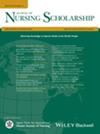The Effect of an Integrative Cognitive Training Program by Family Caregivers on Cognitive Function Among Persons With Traumatic Brain Injury: A Randomized Controlled Trial
Abstract
Purpose
This study aimed to examine the effect of an integrative cognitive training program by family caregivers on cognitive function among persons with traumatic brain injury.
Design
A randomized controlled trial, repeated measures design was utilized.
Methods
The participants were adult persons diagnosed with mild-to-moderate TBI and their family caregivers. They were recruited from the neurology ward at a tertiary hospital in Thailand. One hundred participants were randomly assigned to the experimental group (n = 50) and the control group (n = 50). The experimental group received an integrative cognitive training program from family caregivers based on the theory of neural plasticity in combination with a systematic review, while the control group received usual care. Cognitive function was assessed at baseline and week 2, week 4, and week 6 follow-up using the Montreal Cognitive Assessment. Data were analyzed using descriptive statistics, Chi-square, Fisher's exact test, and repeated measures ANOVA.
Findings
The results showed a significant improvement in cognitive function scores in the experimental group over time (p < 0.001). Additionally, participants in the experimental group who received an integrative cognitive training program by family caregivers demonstrated significantly higher cognitive function scores compared to the control group at week 4 and week 6 follow-up assessments (p < 0.001). The effect sizes were large (η 2 = 0.14) with a test power of 90%.
Conclusions
An integrative cognitive training program can enhance neuroplasticity and improve cognitive function among persons with mild-to-moderate traumatic brain injury. Moreover, involving family caregivers in the rehabilitation process can improve community engagement and cognitive abilities in persons with traumatic brain injury.
Clinical Relevance
Healthcare professionals in neurological settings should incorporate an integrative cognitive training program into their usual care and educate family caregivers to continue the intervention at home for improving cognitive function among persons with mild-to-moderate traumatic brain injury.
Trial Registration
TCTR20230828002




 求助内容:
求助内容: 应助结果提醒方式:
应助结果提醒方式:


